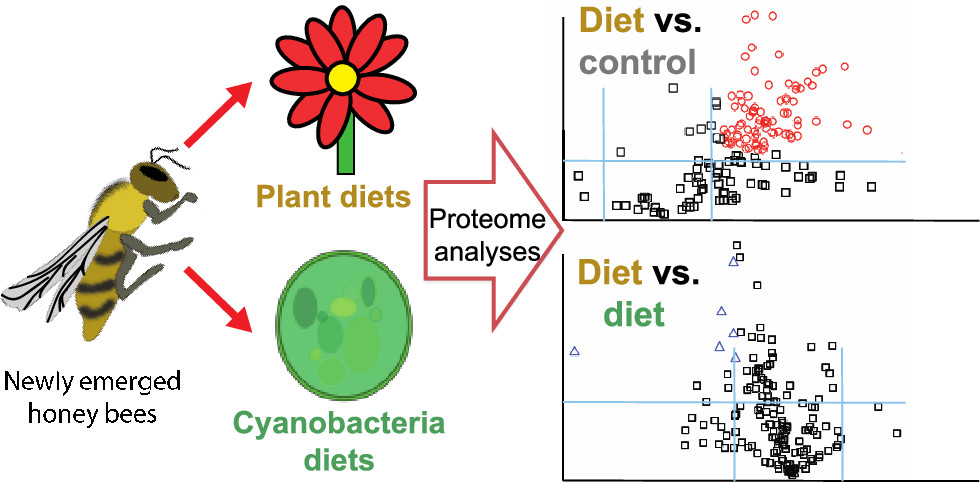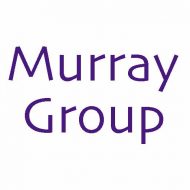V. A. Ricigliano, C. Dong, L.T. Richardson, F. Donnarumma, S.T. Williams, T. Solouki, K.K. Murray, Honey Bee Proteome Responses to Plant and Cyanobacteria (blue-green algae) Diets, ACS Food Science & Technology, 1 (2021) 17-26. 10.1021/acsfoodscitech.0c00001
Abstract

Malnutrition is an increasing threat to honey bees that can be mitigated by feeding artificial pollen substitute diets; however, little is known about the molecular mechanisms underlying their impact on bee health. Here, we examined proteomic responses to natural and artificial diets in the honey bee fat body, a tissue with central nutrient storage and metabolic functions. Bees were fed protein diets of natural pollen, a commercial plant-based diet used by beekeepers that does not contain pollen (Ultra Bee), and two novel cyanobacteria diets comprising dried or fresh laboratory-grown Arthrospira platensis (commonly, spirulina). Relative to a protein-free control group, diet consumption elicited broad upregulation of metabolic processes associated with amino acids, carbohydrates, and lipids. Plant and cyanobacteria diets led to equivalent dietary protein assimilation and a marked overlap in proteome expression patterns, indicative of comparable nutritive and metabolic impacts. This was corroborated by equivalent titers of the storage lipoprotein vitellogenin and nutritionally-regulated stress response proteins (superoxide dismutase, glutathione S-transferase 1, catalase, and heat shock protein 90). The tested diets recapitulated the proteomic effects of a natural pollen diet and support stress resistance via improved nutritional status. Our results provide new insights into the impact of artificial feed on honey bees and highlight the potential of cyanobacterial biomass as a sustainable nutrition source for improving bee health.
